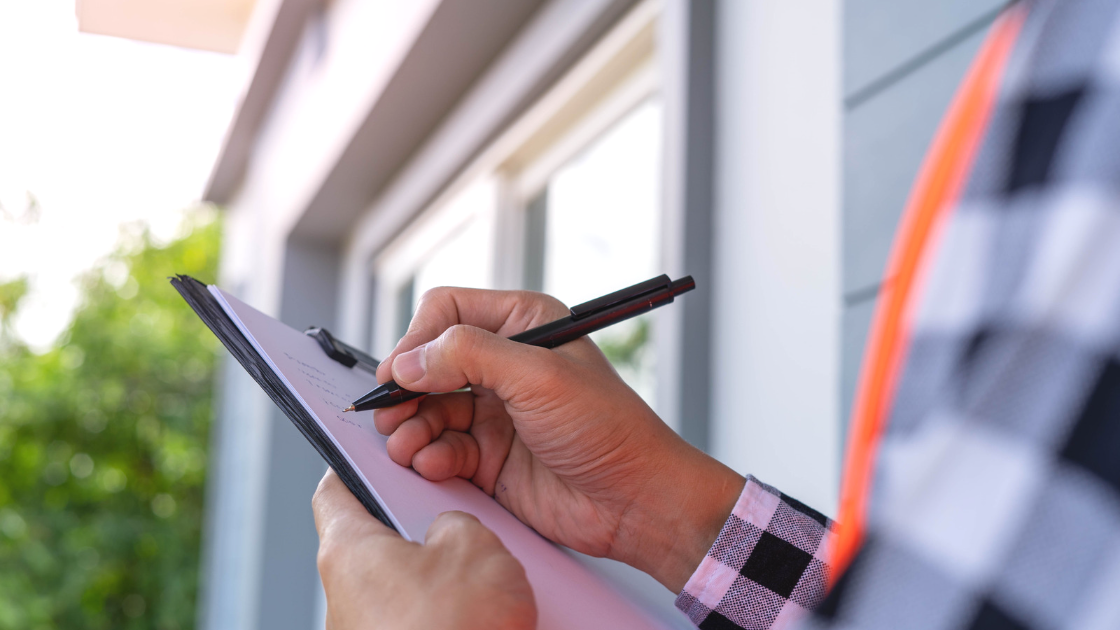Starting a renovation project can feel like stepping into a world of endless possibilities. You’re dreaming of new kitchen counters, a stylish bathroom, or a living room that feels more like home. But before you swing that sledgehammer, here’s one thing I’ve learned the hard way: always get a home inspection first. Trust me, it can save you from some pretty nasty surprises down the road.
The Hidden Risks That Can Derail Your Renovation
When I renovated my first house, I jumped into it with a lot of excitement but very little knowledge. I figured everything would go smoothly. After all, I had a solid plan, a great contractor, and I thought the house was in decent shape. Spoiler alert: I couldn’t have been more wrong.
Here’s the thing: there are so many potential problems in a home that aren’t immediately visible to the naked eye. These issues could cause your renovation to take longer, cost more, or even damage the work you’ve already done. Let’s dive into the most common problems you might face if you skip this crucial step.
Structural Issues You Don’t Want to Ignore
One of the first things I learned from my home inspection was that the foundation wasn’t as solid as I thought. A small crack I noticed in the living room turned out to be a much bigger problem, something that would’ve required serious repair. If I’d started renovating before addressing this, the weight of new flooring or walls could have worsened the problem.
Solution: A structural inspection will check your foundation, framing, and load-bearing walls. If there’s any damage, fixing it early can save you from bigger headaches later. Plus, it’ll prevent your newly renovated rooms from shifting or cracking as the home settles.
Electrical Systems That Need an Upgrade
The electrical system was another surprise I wasn’t ready for. The house had old wiring, and the outlets were not grounded, which meant there was a risk of electrical fires. If I had started adding new lights, appliances, or outlets without updating the system, I could have been setting myself up for disaster.
Solution: An electrician can inspect your system, ensuring it’s up to code and capable of handling your renovation needs. You don’t want to have to open up freshly painted walls to replace faulty wiring. Fixing these issues upfront keeps everything safe and functional.
The Plumbing Issues You Can’t Afford to Overlook
Another story from my own experience: after my kitchen renovation was almost finished, I discovered a hidden plumbing issue. What looked like a minor leak behind the sink turned out to be a full-blown water problem, causing damage to the drywall and flooring.
Plumbing issues can go unnoticed until it’s too late, and if you’re tearing down walls, the last thing you want is to discover leaking pipes or low water pressure once your new fixtures are installed. It’s better to catch these problems before you even start your project.
What You Can Expect From a Plumbing Inspection
A good plumber will check for leaks, evaluate the condition of pipes, and assess water pressure and drainage. If there are issues, it’s best to fix them early, especially if you’re working in kitchens or bathrooms. Addressing these issues will help you avoid water damage, mold, or pest infestations that can be costly to repair later on.
The Roof You Don’t Want to Overlook
If you’re planning to renovate, chances are, you’ll want to open up walls or ceilings, especially in older homes. The roof, though, is one thing many people forget about until water starts leaking in. I learned this the hard way when I noticed a small stain on the ceiling after tearing down some drywall. Turned out, the roof was leaking, and the water had been slowly seeping through the walls.
Why a Roof Inspection Matters
A roof inspection is essential, especially if your home is older or if you’ve noticed signs of wear and tear. A small leak might seem harmless, but it can cause significant damage over time, ruining your renovations before they even have a chance to shine. Plus, if you’re doing any work on the upper floors, you don’t want to risk damaging your new walls or floors with water seepage.
A roof inspection can identify leaks, missing shingles, or weak spots that need to be fixed. Make sure your roof is in tip-top shape before you start tearing down ceilings or knocking down walls.
Mold and Pests: A Bigger Problem Than You Think
No one likes thinking about mold or pests, but they can have a serious impact on your home. When I renovated, I discovered a small patch of mold in the attic, which turned out to be the tip of the iceberg. There was a much larger issue underneath the insulation that needed to be dealt with before moving forward.
Mold and pests can quickly spread if not addressed early, and they can destroy your home’s structure and your newly renovated space. Termites, for example, will eat away at wooden beams and supports, while mold can damage walls and create health risks for you and your family.
How to Prevent Mold and Pest Damage
A mold and pest inspection is a must. The inspector will check for any signs of termites, rodents, or mold, and advise you on how to deal with it. If mold is found, it’s crucial to eliminate it before renovating, as it can grow in walls or under floors, often going unnoticed until it’s too late.
How a Home Inspection Saves You Time and Money
It might feel like an extra expense upfront, but trust me, a home inspection is worth every penny. For one, it helps you budget better. You can plan your renovation knowing what repairs you’ll need to factor in. This makes sure that your costs don’t spiral out of control.
Second, it saves you time. The last thing you want is to hit a major problem halfway through your renovation, causing delays and pushing back your timeline. A home inspection helps you address issues before they become roadblocks.
Final Thoughts: A Home Inspection Is Your Best Friend
Looking back at my first renovation, I wish I had known just how much a home inspection would help me. If I’d done it sooner, I could’ve avoided the headaches and stress that came with unexpected problems. Now, I always recommend getting an inspection before any renovation project.
Getting a home inspection before starting your renovation is a small investment that can save you a lot of time, money, and hassle in the long run. It’ll give you peace of mind, help you stay on budget, and ensure your home is safe and ready for whatever changes you want to make.
So, take the time to schedule that inspection, and make your renovation journey as smooth as possible. You’ll be glad you did.


